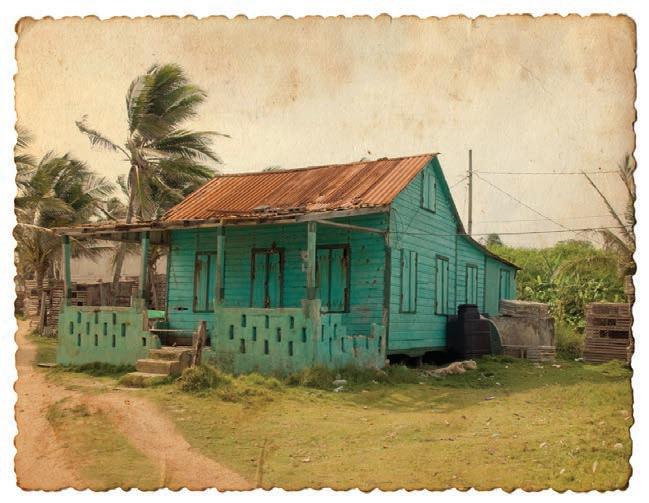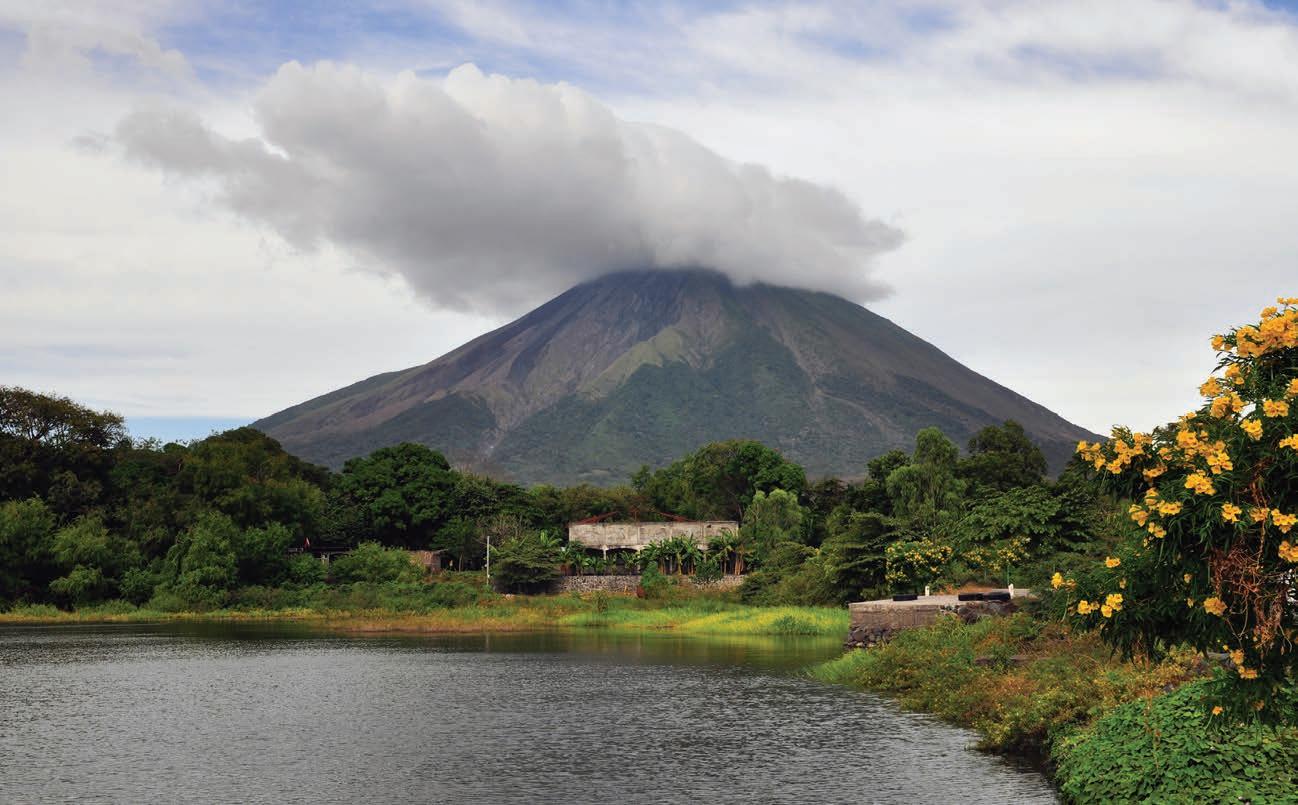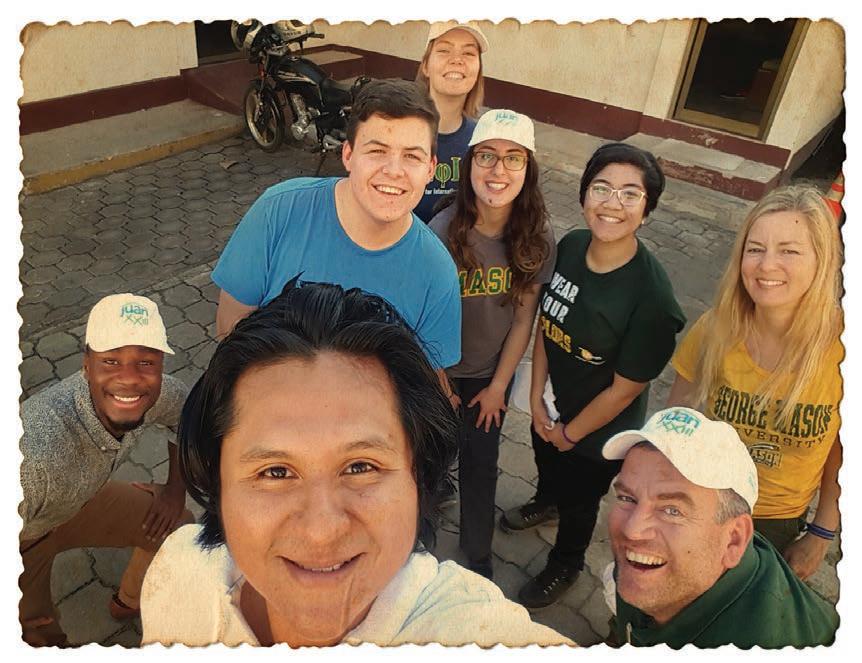
2 minute read
Home Sustainable Home
NONPROFIT PARTNERS
Home Sustainable Home
Over the university’s winter break, a team from Mason’s Engineers for International Development (EfID) few to sunny Nicaragua. They weren’t there to enjoy the weather. The students and their advisors were there to help their Nicaraguan partners address a critical need.
Nicaragua is the second most impoverished country in Latin America, after Haiti, and the poorest country in Central America. About half of the population have limited access to improved sanitation. Scores of homes consist of sheet metal roofs and unreinforced cinder blocks, and they lack doors and windows. Stable, affordable housing is a critical, unmet need.
The trip’s main objective was to develop a master plan for two related and affordable Nicaraguan housing projects.
During the action-packed week, the team encountered steep and dry terrain, a live volcano, rattlesnakes, and groundwater resources potentially impacted by decades of chemical and untreated sewage releases into the regional Lake Managua.
“We toured the area, developed a site master plan, presented it to our partners, and spoke to the bankers,” says Mason mechanical engineering major Jack Scherer. “The trip made me want to come back to school and work harder because now I know how the work can change people’s lives.”
Although the country’s steep terrain is inhospitable for housing, it presents an excellent opportunity for wind and solar felds to supplement the student engineers’ vision for solar panels on individual homes.
The Nicaraguan partners are considering other sustainable practices that are new to Nicaraguan housing developments, including stormwater collection and underground storage, burial of power lines to reduce the impact of natural disasters, such as hurricanes and earthquakes, and solid waste composting and recycling. In addition to affordability, the plan for the two communities will incorporate a primary school; exposure and opportunity to promote sustainable practices to preserve the natural environment; establishment of employment opportunities within the community to support economic development and viability; support for preventative health care and healthy lifestyle practices; and resilient infrastructure systems.
“The most impactful part of the trip was the student interaction with the community and families who might live in such a community and their enthusiasm and gratitude for the students’ conceptual master plan,” says Liza Wilson Durant, associate dean, strategic initiatives and community engagement.
For civil engineering major Andrew Simpson, the trip was the frst time he had been out of the United States. “I had never been on a plane before. The farthest away from home I had traveled was New York City,” says Simpson. “My parents are from Ghana and have made me aware of our family’s story, but it’s easy to forget that others are writing their narrative. The experience in Nicaragua drove that point home.”
“It’s projects like these that allow us to be the change we wish to see in the world,” Simpson says.
––Martha Bushong

Team members who participated in the project include Andrew Simpson, Nicaraguan engineer Kenneth Garcia, Jack Scherer, Anna Close, Badana Mohamadi, Eden Beth Devera, faculty advisor Matt Doyle, and Liza Wilson Durant, associate dean, strategic initiatives and community engagement.










